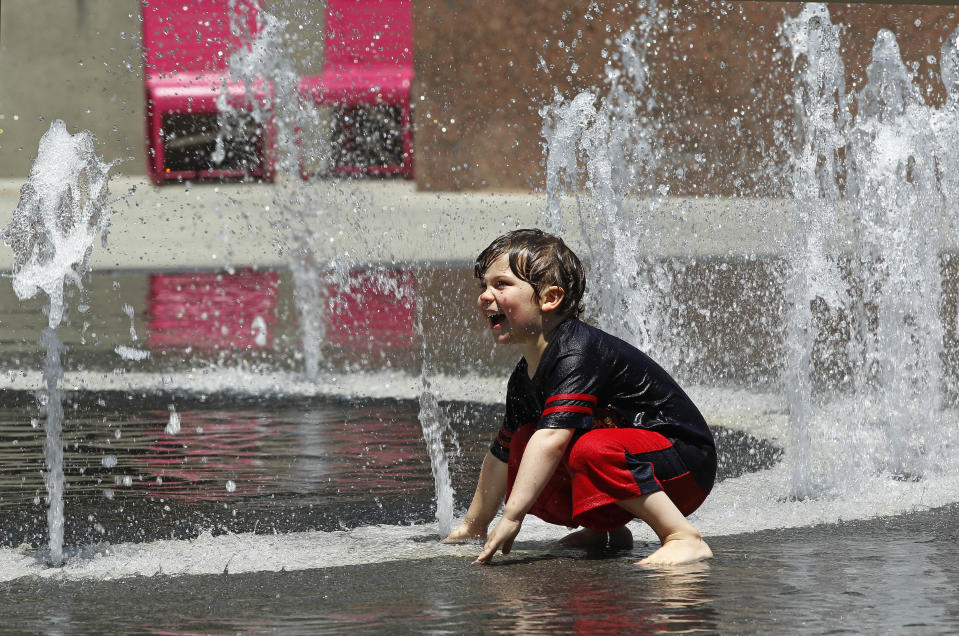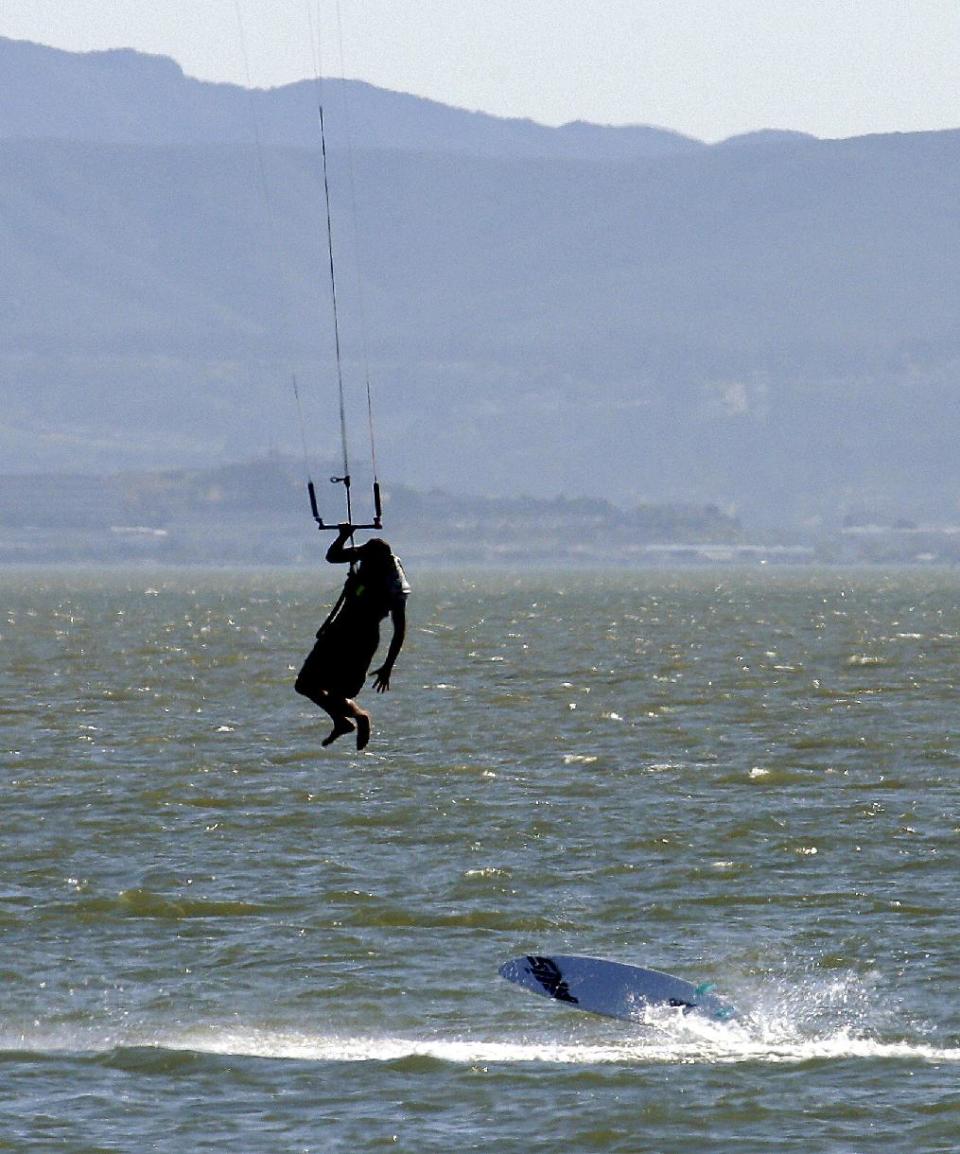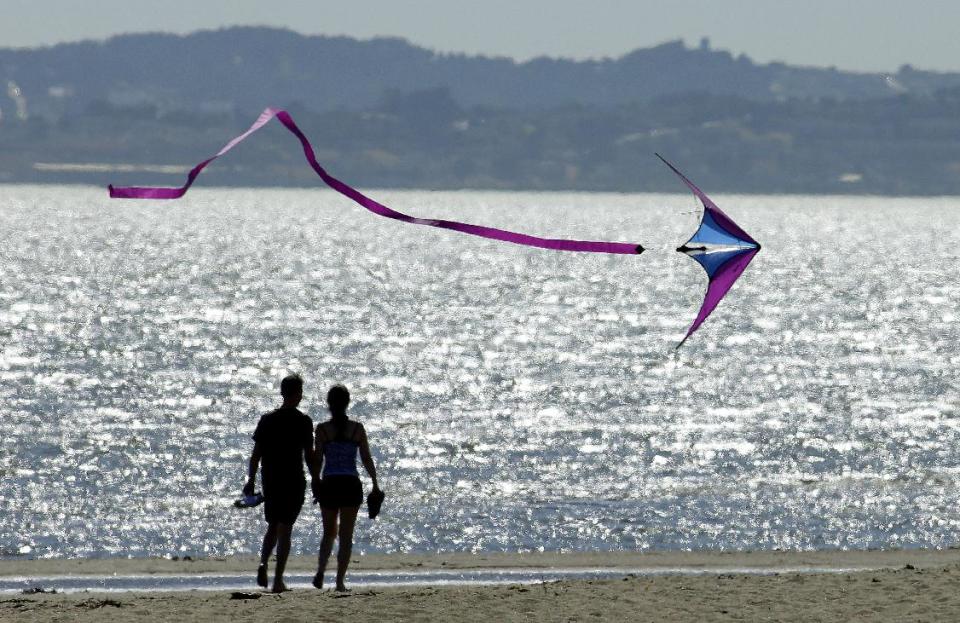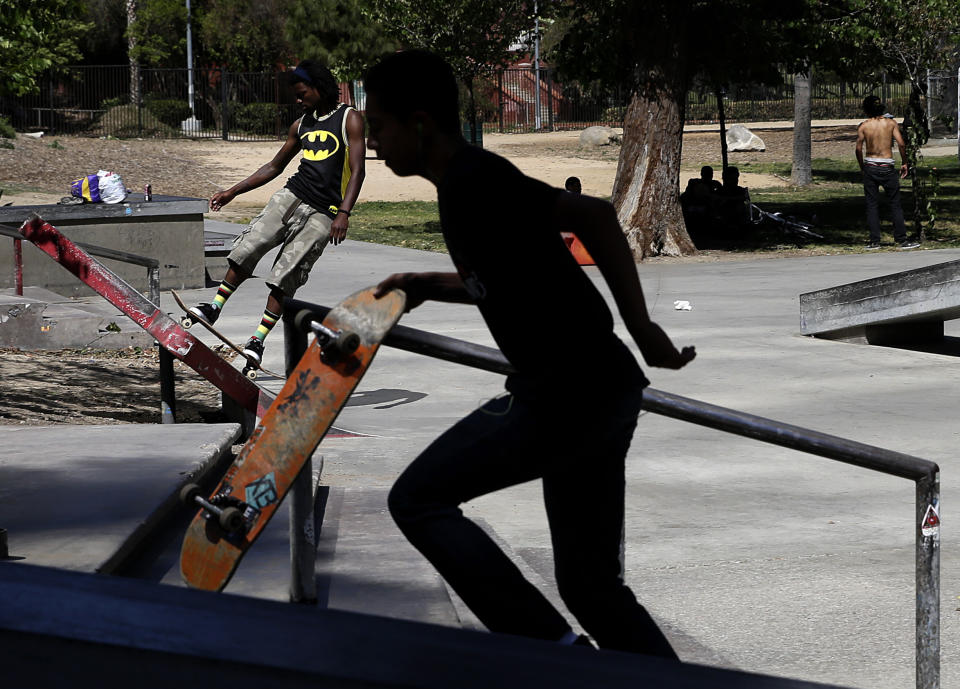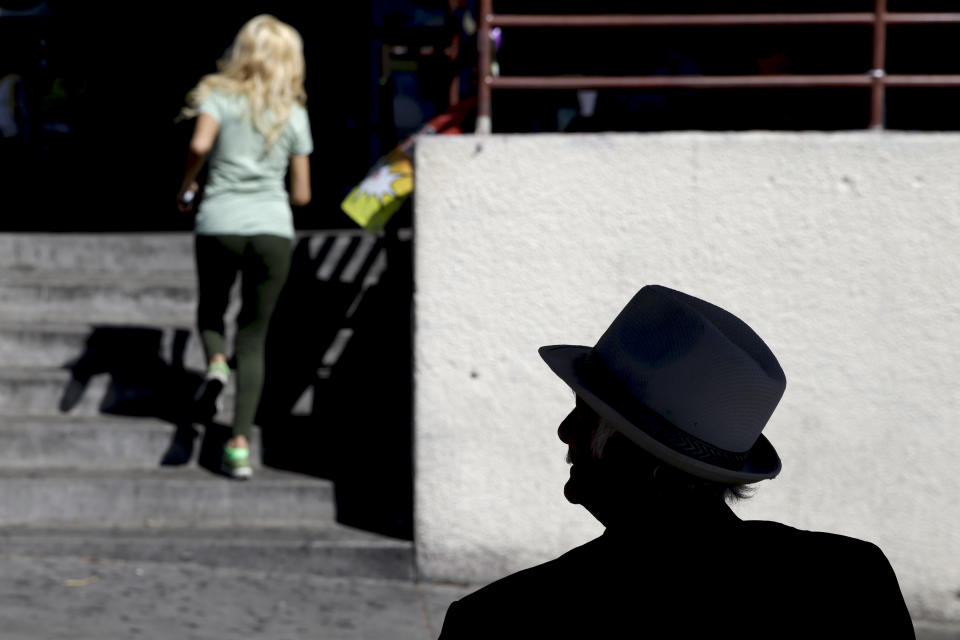Fires erupt amid California heat wave
SAN DIEGO (AP) — Wildfires destroyed a home and forced the evacuation of several others Tuesday in California as a high-pressure system brought unseasonable heat and gusty winds to a parched state that should be in the middle of its rainy season.
The biggest fire broke out in the Rancho Bernardo area of San Diego and rapidly moved westward through canyons surrounding islands of modern housing tracts. It quickly grew to 100 acres.
Several neighborhoods were evacuated as a precaution but no homes were in imminent danger, San Diego fire spokesman Lee Swanson said.
At least two high schools and one elementary school also were evacuated, police Detective Gary Hassen said.
Some land had been cleared for future development and that helped slow the fire's pace, despite gusting winds, authorities said.
About 100 firefighters battled the blaze, along with aircraft that dumped water and retardant.
Another fire destroyed a mobile home and prompted the evacuation of five homes in the rural town of Campo in southern San Diego County before it was largely surrounded, state fire Capt. Kendal Bortisser said.
A half-dozen other blazes had occurred statewide but all remained small, said Daniel Berlant, a spokesman for the California Department of Forestry and Fire Protection.
Record high temperatures were likely through midweek from Southern California north to the regions around Monterey and San Francisco bays, the National Weather Service said. Downtown Los Angeles was 92 degrees at noon, 18 degrees above normal.
With the combination of high heat, low relative humidity and the region's notoriously gusty Santa Ana winds, Los Angeles and neighboring cities activated parking restrictions in certain areas to make sure emergency vehicles could get through if fires erupted in dry brush.
Months of drought have left much of the landscape ready to burn. Downtown Los Angeles has recorded just 6.08 inches of precipitation with little time left in the July 1-June 30 rain year. That's less than half its annual average rainfall.
"Fire season last year never really ended in Southern California," said Berlant. His agency has responded to more than 1,350 fires since Jan. 1, compared to an average of 700 by this time of year.

